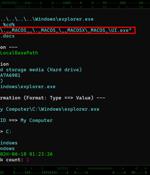Security News

A trio of threat activity clusters linked to China has been observed compromising more government organizations in Southeast Asia as part of a renewed state-sponsored operation codenamed Crimson...

New attacks attributed to China-based cyber espionage group Mustang Panda show that the threat actor switched to new strategies and malware called FDMTP and PTSOCKET to download payloads and steal...

The China-linked advanced persistent threat (APT) group known as Mustang Panda has been observed weaponizing Visual Studio Code software as part of espionage operations targeting government...

Unnamed government entities in the Middle East and Malaysia are the target of a persistent cyber campaign orchestrated by a threat actor known as Tropic Trooper since June 2023. "Sighting this...

The Chinese-speaking threat actor known as Earth Lusca has been observed using a new backdoor dubbed KTLVdoor as part of a cyber attack targeting an unnamed trading company based in China. The...

Chinese-speaking users are the target of a "highly organized and sophisticated attack" campaign that is likely leveraging phishing emails to infect Windows systems with Cobalt Strike payloads....

Ground stations are the perfect place for the Great Firewall to block things China finds unpleasant The multiple constellations of broadband-beaming satellites planned by Chinese companies could...

Users of Chinese instant messaging apps like DingTalk and WeChat are the target of an Apple macOS version of a backdoor named HZ RAT. The artifacts "almost exactly replicate the functionality of...

The China-nexus cyber espionage group tracked as Volt Typhoon has been attributed with moderate confidence to the zero-day exploitation of a recently disclosed high-severity security flaw...

The Chinese state-backed hacking group Volt Typhoon is behind attacks that exploited a zero-day flaw in Versa Director to upload a custom webshell to steal credentials and breach corporate networks. [...]